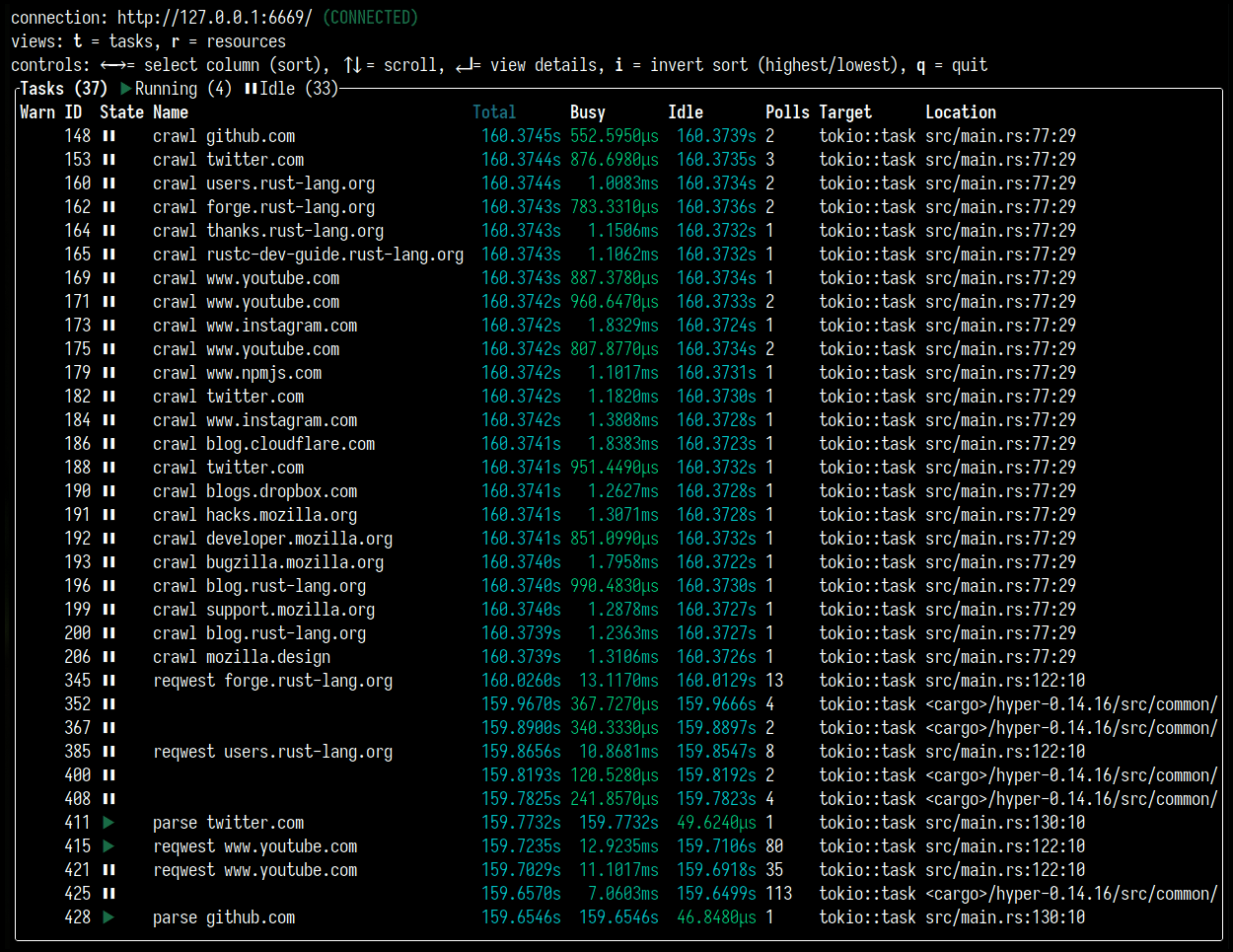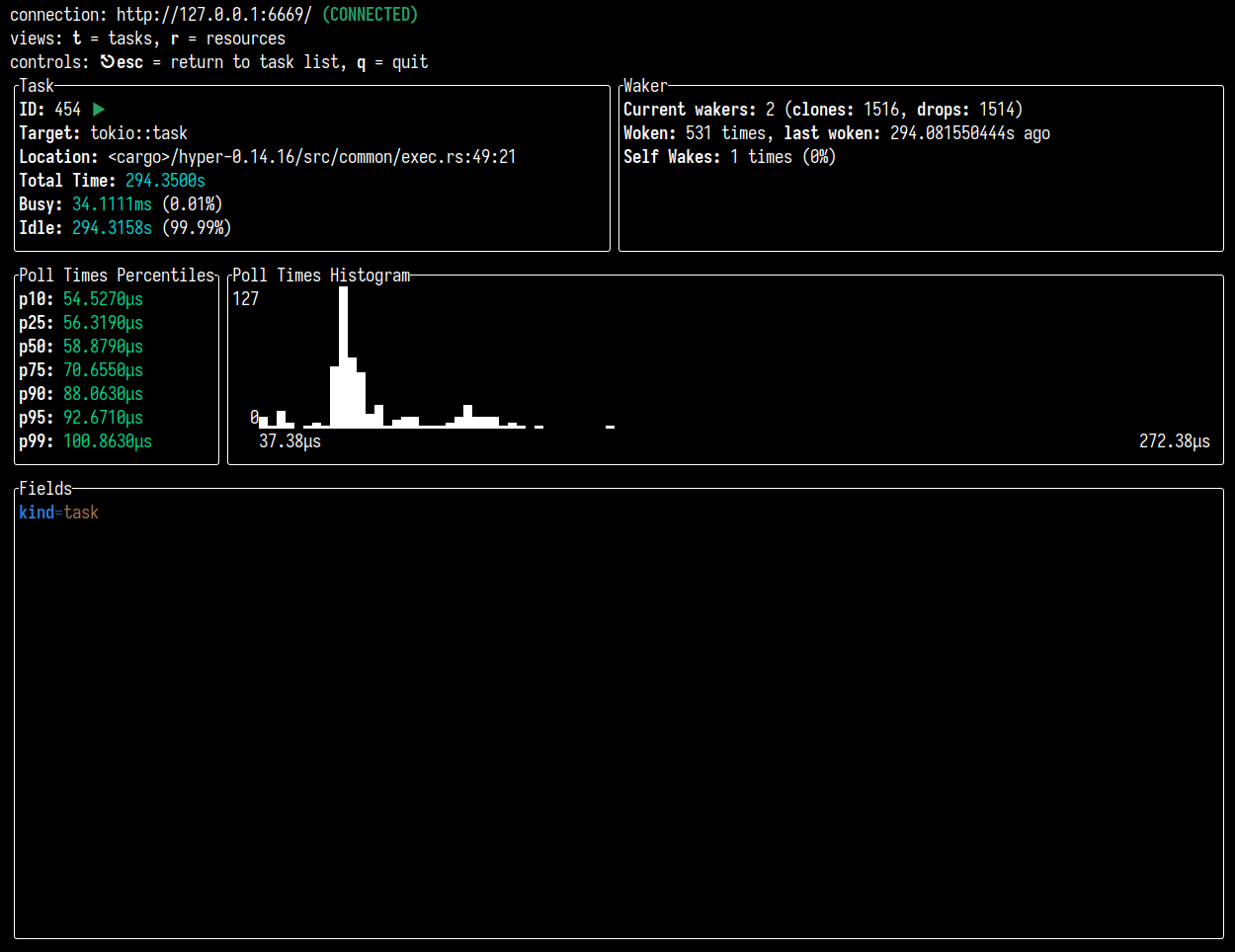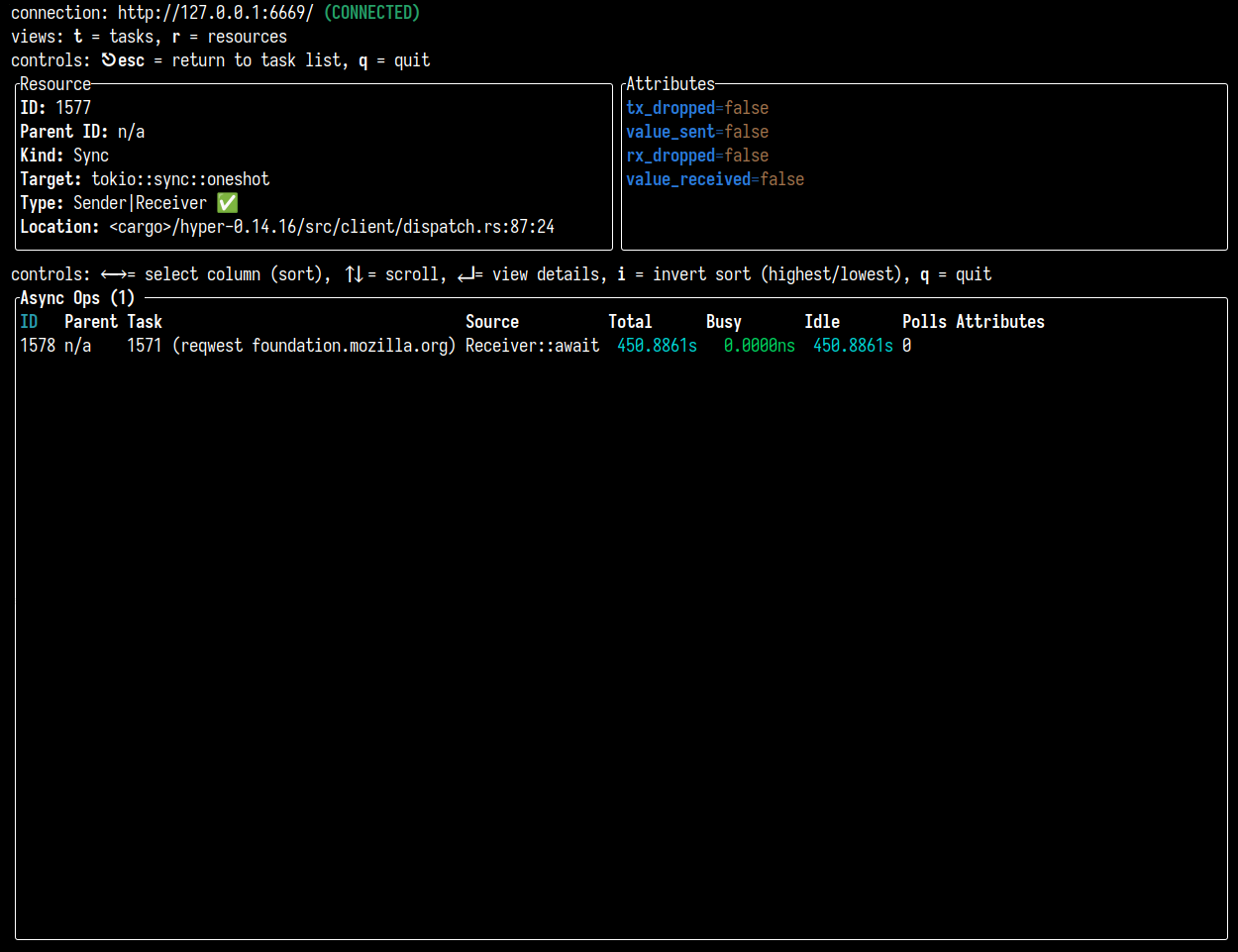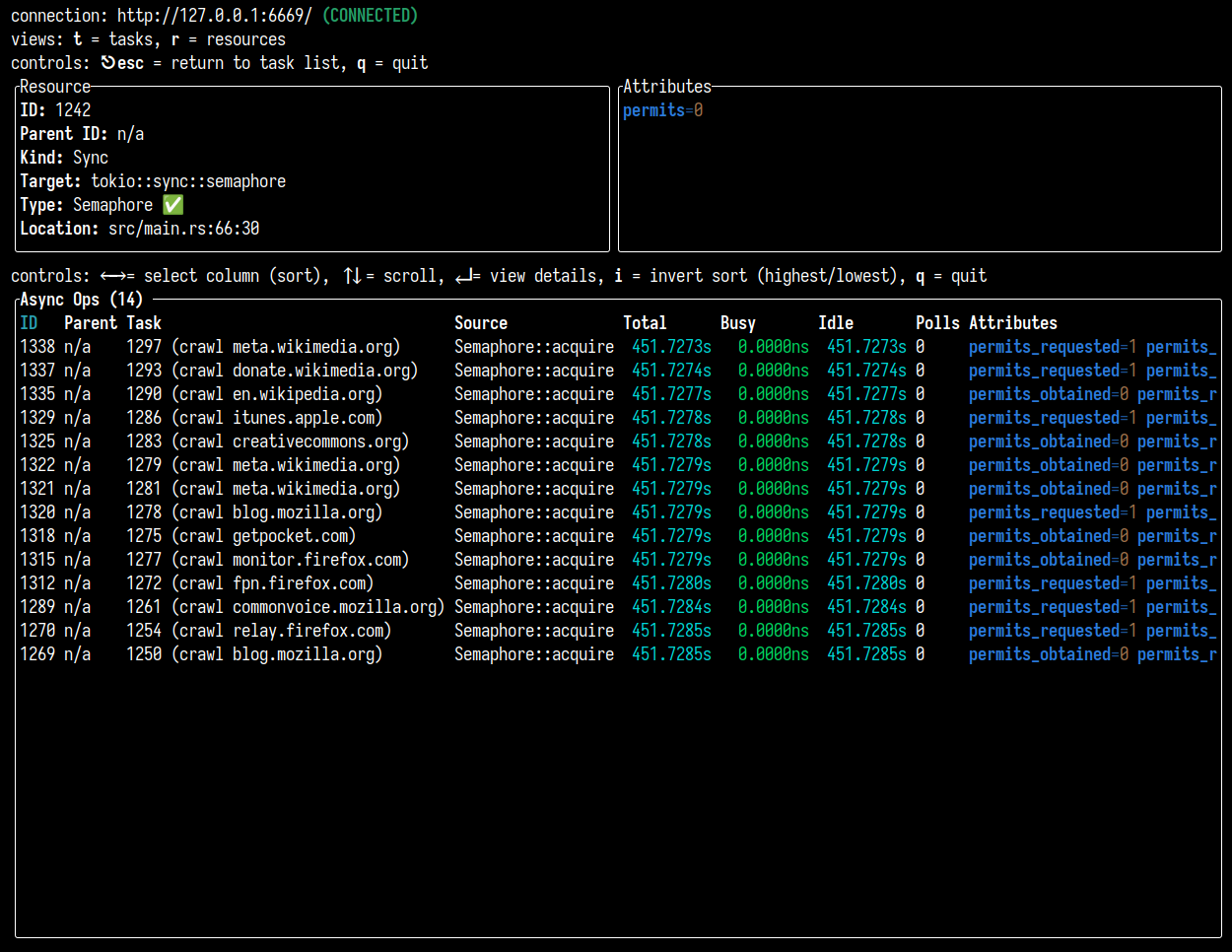Crate tokio_console
source · [−]Expand description
tokio-console CLI
🎛️ The Tokio console: a debugger for asynchronous Rust programs.
Website | Chat | API Documentation
Overview
tokio-console is a debugging and profiling tool for asynchronous Rust
applications, which collects and displays in-depth diagnostic data on the
asynchronous tasks, resources, and operations in an application. The console
system consists of two primary components:
- 📡️ instrumentation, embedded in the application, which collects data from the async runtime and exposes it over the console’s wire format
- 🛰️ consumers, which connect to the instrumented application, recieve telemetry data, and display it to the user
This crate is the primary consumer of tokio-console telemetry, a command-line
application that provides an interactive debugging interface.
Getting Started
To use the console CLI to debug an asynchronous application, the application
must first be instrumented to record tokio-console telemetry. The easiest way
to do this is using the console-subscriber crate.
Once the application is instrumented, install the console CLI using
cargo install tokio-consoleRunning tokio-console without any arguments will connect to an application on
localhost listening on the default port, port 6669:
tokio-consoleIf the application is not running locally, or was configured to listen on a different port, the console will also accept a target address as a command-like argument:
tokio-console http://192.168.0.42:9090A DNS name can also be provided as the target address:
tokio-console http://my.instrumented.application.local:6669When the console CLI is launched, it displays a list of all asynchronous tasks in the program:

Using the ↑ and ↓ arrow keys, an individual task can be highlighted. Pressingenter while a task is highlighted displays details about that task:

Pressing the escape key returns to the task list.
The r key switches from the list of tasks to a list of resources, such as synchronization primitives, I/O resources, et cetera:

Pressing the t key switches the view back to the task list.
Like the task list view, the resource list view can be navigated using the ↑ and ↓ arrow keys. Pressing enter while a resource is highlighted displays details about that resource:

The resource details view lists the tasks currently waiting on that resource.
This may be a single task, as in the tokio::sync::oneshot channel above, or
a large number of tasks, such as this tokio::sync::Semaphore:

Like the task details view, pressing the escape key while viewing a resource’s details returns to the resource list.
Command-Line Arguments
Running tokio-console --help displays a list of all available command-line
arguments:
$ tokio-console --help
tokio-console 0.1.0
USAGE:
tokio-console [OPTIONS] [TARGET_ADDR]
ARGS:
<TARGET_ADDR>
The address of a console-enabled process to connect to.
This may be an IP address and port, or a DNS name.
[default: http://127.0.0.1:6669]
OPTIONS:
--ascii-only
Explicitly use only ASCII characters
--colorterm <truecolor>
Overrides the value of the `COLORTERM` environment variable.
If this is set to `24bit` or `truecolor`, 24-bit RGB color support will be enabled.
[env: COLORTERM=truecolor]
[possible values: 24bit, truecolor]
-h, --help
Print help information
--lang <LANG>
Overrides the terminal's default language
[env: LANG=en_US.UTF-8]
[default: en_us.UTF-8]
--log <ENV_FILTER>
Log level filter for the console's internal diagnostics.
The console will log to stderr if a log level filter is provided. Since the console
application runs interactively, stderr should generally be redirected to a file to avoid
interfering with the console's text output.
[env: RUST_LOG=]
[default: off]
--no-colors
Disable ANSI colors entirely
--no-duration-colors
Disable color-coding for duration units
--no-terminated-colors
Disable color-coding for terminated tasks
--palette <PALETTE>
Explicitly set which color palette to use
[possible values: 8, 16, 256, all, off]
--retain-for <RETAIN_FOR>
How long to continue displaying completed tasks and dropped resources after they have
been closed.
This accepts either a duration, parsed as a combination of time spans (such as `5days
2min 2s`), or `none` to disable removing completed tasks and dropped resources.
Each time span is an integer number followed by a suffix. Supported suffixes are:
* `nsec`, `ns` -- nanoseconds
* `usec`, `us` -- microseconds
* `msec`, `ms` -- milliseconds
* `seconds`, `second`, `sec`, `s`
* `minutes`, `minute`, `min`, `m`
* `hours`, `hour`, `hr`, `h`
* `days`, `day`, `d`
* `weeks`, `week`, `w`
* `months`, `month`, `M` -- defined as 30.44 days
* `years`, `year`, `y` -- defined as 365.25 days
[default: 6s]
-V, --version
Print version informationGetting Help
First, see if the answer to your question can be found in the API documentation. If the answer is not there, there is an active community in the Tokio Discord server. We would be happy to try to answer your question. You can also ask your question on the discussions page.
Contributing
🎈 Thanks for your help improving the project! We are so happy to have you! We have a contributing guide to help you get involved in the Tokio console project.
Supported Rust Versions
The Tokio console is built against the latest stable release. The minimum supported version is 1.56. The current Tokio console version is not guaranteed to build on Rust versions earlier than the minimum supported version.
License
This project is licensed under the MIT license.
Contribution
Unless you explicitly state otherwise, any contribution intentionally submitted for inclusion in Tokio by you, shall be licensed as MIT, without any additional terms or conditions.



